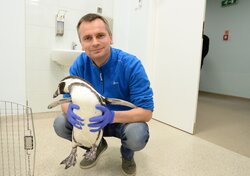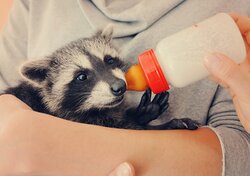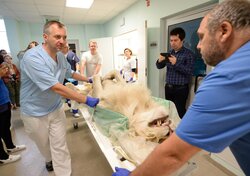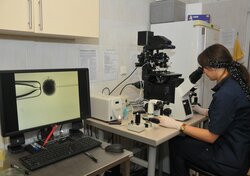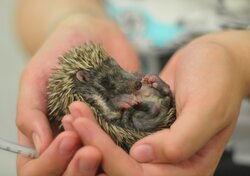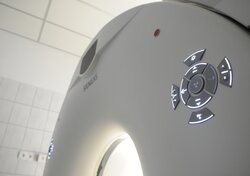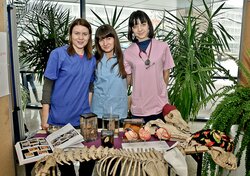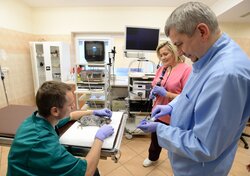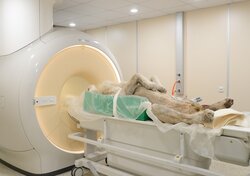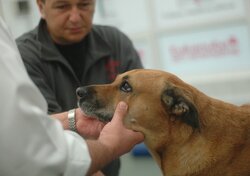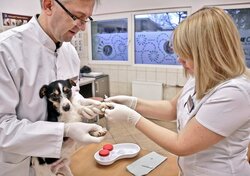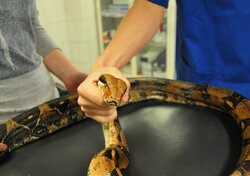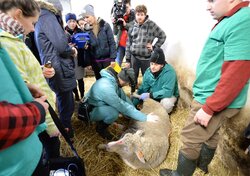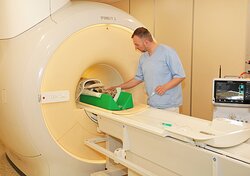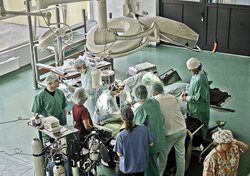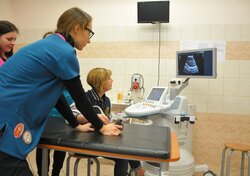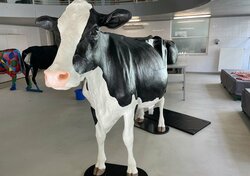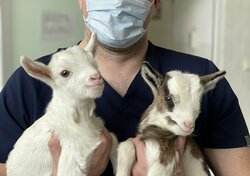Uniform Master Veterinary Medicine studies in the English language
14.08.2019
Programme overview
Duration: 5,5 years full time (11 semesters)
Starting Month: October
Language of instruction: English
Tuition fee: 20.000 PLN/semester (applicable to all students)
Educating and training veterinary professionals is the main goal of the DVM programme. During the 11-semester period of studies (5,5 years), students develop a strong core of veterinary science knowledge, can follow their area of interest, and gain a wealth of professional experience through various internships in veterinary clinics, farms, and the food industry.
The Faculty of Veterinary Medicine at the Wroclaw University of Environmental and Life Sciences (UPWr) is accreditted in Poland and can boast a positive assessment of the European Association of Faculties of Veterinary Medicine (EAEVE), which confirms the highest quality of education at the faculty. This accreditation assures the graduates of the faculty that their professional diploma is recognised in the whole European Union. The Faculty has also been awarded the Certificate of Educational Excellence from the Polish Accreditation Committee.
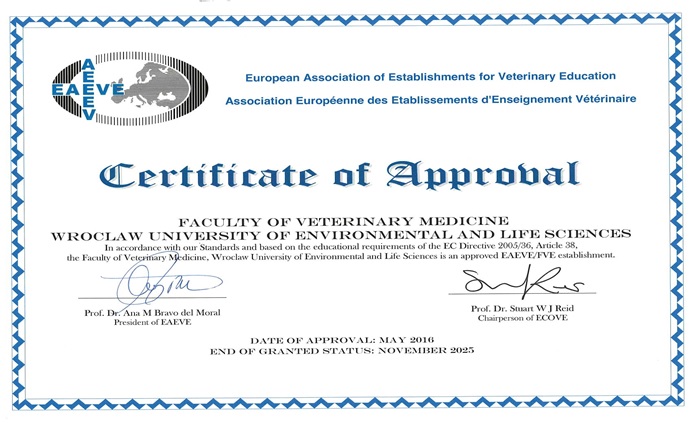
A successful graduate obtains a degree of Doctor of Veterinary Medicine degree (PL: lekarz weterynarii) and can begin to work treating various kinds of animals (including companion, farm, and exotic animals), in research, in the food industry, or in public health. During the 5,5 year programme, the student has a chance to explore all different areas of veterinary medicine and different animal species. After developing a strong core of knowledge in veterinary science, students can follow their interests through species oriented training, clinical internships, exchange programmes and elective subjects that correspond to their desired focus.
Upon graduation, there are many ways to pursue a rewarding professional career in veterinary hospitals, clinics, inspection stations, research centres, pharmaceutical or food production companies, and many more.
Professional specialization and academic work can be continued during PhD studies at the UPWr International Doctoral School, through postgraduate studies and specialization courses for veterinarians.
Programme overview
- Duration: 5,5 years full time (11 semesters)
- On Campus
- Professional degree: lekarz weterynarii (Doctor of Veterinary Medicine (DVM) / Veterinary Surgeon)
- Starting Month: October
- Tuition fee: 20 000 PLN/semester
The veterinary medicine programme begins with general subjects and basic sciences in the first and second year. Those are followed by further subclinical and diagnostic subjects. First classes in diseases of specific animals and classes with live animals start in year 3. Year 4, 5 & 6 are devoted to diseases of various species (farm animals, horses, dogs, cats, fish, birds, and others), food hygiene, clinical internships, and elective subjects. Theoretical knowledge in the field of veterinary science taught during the first four years of study provides the basis for practical training and internships, which are heavily featured in the final years of study.
All students have a chance to gain a wealth of professional experience during various practical classes, laboratories and 560 hours of internships in clinics (2 months), farms (2 weeks), food production and food safety entities (2 weeks). The students will have a chance to practice in 4 university clinics (Clinic of Surgery, Clinic of Diseases of Horses, Dogs and Cats, Clinic of Birds and Exotic Animals, Clinic or Farm Animals), outbound animal breeding centres and farms.
During the study programme, students are asked to do 14 weeks in total of obligatory vocational placement, divided into a few 2-4 weeks long rounds. Most of them you can do wherever you want to! If you have a favourite veterinary clinic or farm in your country, you are allowed to do university internships there as long as it gives you enough opportunity to practice designated tasks. There are some practical training courses for veterinarians available within the Erasmus+ or IVSA programme. As a young professional, you can choose from many international programmes offering hands-on practical training all over the world (e.g. national parks in Africa, zoological gardens in Europe, etc.). Those training courses are available for more advanced students of the 4-5th year. Students are allowed to get involved as volunteers at the university clinics, animal shelters, Wrocław horse racecourse or NGOs. If you are interested in a specific class or topic, you can approach your lecturer and ask if there is any option for you to be more involved - you may find additional opportunities for practical experience, research work or mentorship.
There are 6 scientific groups for students of veterinary medicine at UPWr. There is also an organization operating internationally: International Veterinary Students' Association (IVSA), which has its representative students at the faculty as well.
Entry requirements for Uniform Master studies in Veterinary Medicine in the English language
Intake period: March - September
Application fee: 20 euro or 85 PLN
Entry documents
Applicants for veterinary medicine uniform master studies are obliged to present a document certifying they have obtained secondary education. Depending on the education system, this can be a matriculation certificate, secondary school leaving examination results, or a high school diploma. The document presented by the applicant has to entitle them to study at the undergraduate university level in the country where the document has been issued.
Non-native speakers of English will be required to present one of the following certificates proving knowledge of the English language:
- IELTS, at least level B2;
- TOEFL, at least level B2;
- Cambridge B2 First, C1 Advanced, C2 Proficiency (former FCE, CAE, CPE);
- an IB or EB diploma;
- a document from your high school/college certifying the language of instruction was English;
- German secondary school certificates: minimum grade 2 (scope 1-6), 8 (scope 1-15);
- Norwegian secondary school certificates: English language - minimum grade 4; ·
- Swedish secondary school certificates: English language - minimum grade C or VG;
- Danish secondary school certificates: English language - minimum grade A level 7;
- others considered individually.
Obligatory grades
The grades in advanced biology and chemistry subjects will be evaluated. The applicant should obtain at least 30% of the maximum possible grade in each subject.
You must eventually present results in both application subjects. At least one of those subjects must be passed by taking it as part of final high school exams, or by taking an SAT Subject Test (Chemistry or Biology M), or by taking BMAT. The second subject can be taken as part of the UPWr online interview if needed.
Your result in each subject is recalculated to fit a scale from 0 to 100 points. You need to score at least 60/200 points for both subject results combined.
Obligatory UPWr interview
Every applicant needs to participate in an online interview, divided into four parts: scientific English, knowledge in biology, knowledge in chemistry, predispositions to the veterinary profession. Each part is scored separately on a scale from 0 to 25 points, with the maximum total score for the interview being 100 points. You need to score at least 60/100 points to pass the interview.
A detailed description of the interview.
The legalisation of school documents
All school documents issued outside Poland should be validated by the Apostilleor legalised in the Polish embassy (only for countries which are not part of the Apostille Convention) in the county where the document has been issued.
Recognition of school documents
If your documents were issued in a country other than those listed below, it is likely your education will need to be formally recognised in a separate procedure which will require additional documents. In that case, please refer to the tab with information about the formal recognition of education.
Countries whose qualifications do not need to be formally recognised:
Australia, Austria, Belarus, Belgium, Bulgaria, Canada, Chile, China, Colombia, Costa Rica, Croatia, the Republic of Cyprus, the Czech Republic, Denmark, Estonia, Finland, France, Germany, Greece, Hungary, Iceland, Ireland, Israel, Italy, Japan, Korea, Latvia, Liechtenstein, Lithuania, Luxembourg, Malta, Mexico, the Netherlands, New Zealand, Norway, Poland, Portugal, Romania, Slovakia, Slovenia, Spain, Sweden, Switzerland, Turkey, Ukraine, the UK, and the USA.
Translations of documents
The school documents have to be presented in English or Polish language. If they have been issued in other languages, the sworn translation into one of the languages mentioned is required.
Health certificate
You will also need to submit a health certificate confirming that you are fit to study veterinary medicine. This certificate has to be issued by an occupational medicine office in Poland on the basis of a referral made by the university, so you will only have to make an appointment eith a doctor after you are accepted. All details will be made available by the university closer to the start of the academic year.
Health risks specific to the veterinary medicine programme are contact with animals and animal secretions, zoonotic diseases and chemical substances used in laboratories. Examples of conditions that may be contraindications to study veterinary medicine include extreme allergies to any of the above and any conditions that seriously compromise your ability to safely handle animals, especially ones that are large or uncooperative. In case of doubt, please consult with your doctor to make sure you can safely pursue the DVM degree.
Payments
Payments for each semester of study should be made before the beginning of each semester. Confirmation of payment for the 1st semester of studies - the candidate accepted for studies should send by e-mail to: vet.studies@upwr.edu.pl
Meet our international students!
Are you interested in how the life of a vet student looks? Do you wonder if studying abroad is for you? Our veterinary medicine international students talk about their experience and accomplishments on the way to fulfilling their dreams of becoming a veterinarian.
All the podcast episodes may be found on our YouTube channel. Grab a cup of coffee or tea, find a comfy chair and take time to listen to those exciting stories!
Media
Gallery:



